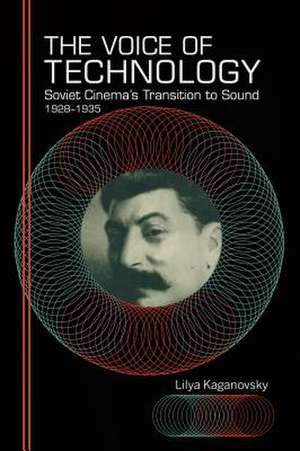The Voice of Technology – Soviet Cinema`s Transition to Sound, 1928–1935
Autor Lilya Kaganovskyen Limba Engleză Paperback – 12 feb 2018
| Toate formatele și edițiile | Preț | Express |
|---|---|---|
| Paperback (1) | 229.45 lei 43-57 zile | |
| MH – Indiana University Press – 12 feb 2018 | 229.45 lei 43-57 zile | |
| Hardback (1) | 562.16 lei 43-57 zile | |
| MH – Indiana University Press – 12 feb 2018 | 562.16 lei 43-57 zile |
Preț: 229.45 lei
Nou
Puncte Express: 344
Preț estimativ în valută:
43.91€ • 45.58$ • 36.61£
43.91€ • 45.58$ • 36.61£
Carte tipărită la comandă
Livrare economică 24 martie-07 aprilie
Preluare comenzi: 021 569.72.76
Specificații
ISBN-13: 9780253032652
ISBN-10: 0253032652
Pagini: 294
Dimensiuni: 152 x 227 x 18 mm
Greutate: 0.4 kg
Editura: MH – Indiana University Press
ISBN-10: 0253032652
Pagini: 294
Dimensiuni: 152 x 227 x 18 mm
Greutate: 0.4 kg
Editura: MH – Indiana University Press
Cuprins
Notă biografică
Lilya Kaganovsky
Descriere
Descriere de la o altă ediție sau format:
By exploring numerous examples of films from this transitional period, Kaganovsky demonstrates the importance of the new technology of sound in producing and imposing the "Soviet Voice."
By exploring numerous examples of films from this transitional period, Kaganovsky demonstrates the importance of the new technology of sound in producing and imposing the "Soviet Voice."
